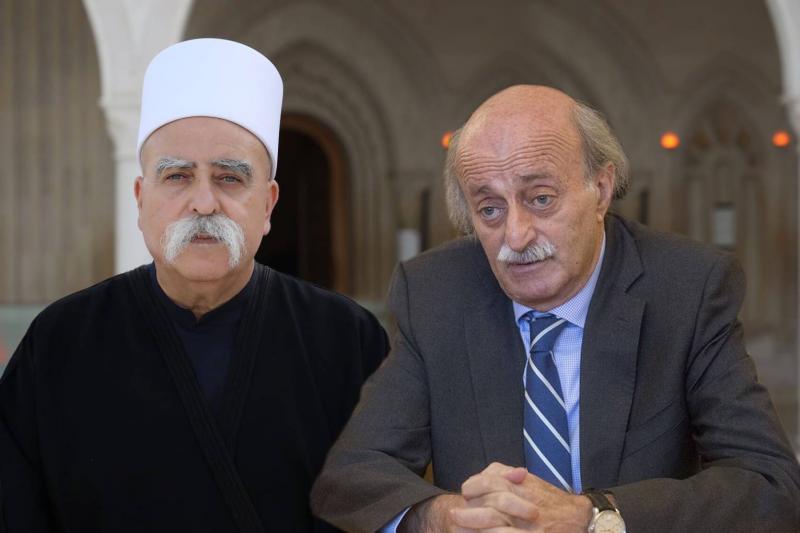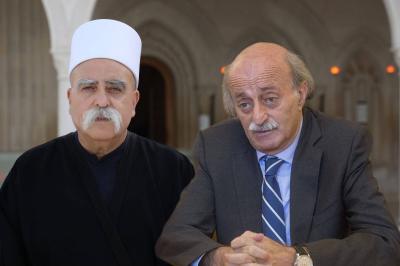A debate is underway between Walid Jumblatt and Sheikh Muwafaq Tarif regarding belonging, identity, and the interests of the community. The former leader of the Progressive Socialist Party, Walid Jumblatt, responded to a reply he received from Sheikh Muwafaq Tarif, following an initial letter addressed to him.
Jumblatt expressed that he shares the same concern Sheikh Tarif has shown about resolving Lebanon's crises, emphasizing the responsibility they share, as well as the potential solutions available. Jumblatt extended his commitment to ensuring the dignity of the Druze community in all their locations, under the umbrella of their Arab Islamic identity, which many are trying to distort. He highlighted the obligation to address this issue.
Jumblatt also noted the aggression occurring in occupied Palestine, executed by Benjamin Netanyahu's government, labeling it a crime against humanity that impacts the conscience of every person, including Arabs and Muslims—both he and Tarif included. He called for a unified stance against this aggression affecting everyone, stating that the reception of Netanyahu harmed the Druze community in Palestine, Lebanon, and elsewhere.
Concerning the tradition of welcoming visitors, Jumblatt asserted that the bravery, a trait of their community, necessitates refusing to host Netanyahu amidst his actions, and urged a clear stance against his activities. He emphasized the need for coordination that benefits all community members without harming any group in their respective regions and helps affirm their collective belonging to the Arab Islamic identity.
In Sheikh Tarif's message, he expressed respect for Jumblatt while criticizing the public nature of their correspondence, wishing for direct, personal communication to maintain sincerity and clarity in expressing their intentions for the community's benefit, without pleasing any external party.
Tarif stated their strong commitment to the purity of their community, its unifying identity, history, and future. He acknowledged that they are citizens of a democratic state, respecting its laws and the rights of its citizens, similar to all Arab citizens in Israel. He hoped that Jumblatt would respect their clear stance on these matters, just as they respect Jumblatt's positions, even when they fluctuate regarding Lebanon's complex issues.
Tarif emphasized that they do not engage in political maneuvering and expressed hope for the Druze of Lebanon to maintain their commitment to their state and homeland, aspiring for the same from Druze in Syria and elsewhere regardless of difficult circumstances.
He mentioned that once internal Lebanese issues are resolved, they could discuss ways to assist their Palestinian brothers in securing their rights, building their state, and achieving just peace in the region.
Tarif acknowledged the deep connections they hold with the Palestinian community, including both leadership and the populace, which respects the Druze community. He expressed appreciation for the roles of Egypt, Jordan, the UAE, Qatar, and Saudi Arabia in overseeing mediations for peace, emphasizing their hope for an end to the ongoing war devoid of the incitement fostered by terrorist entities.
Lastly, he affirmed that they live freely and respectfully in their country, unafraid of anyone, and are ready to take any necessary stance for their community's benefit. Their clear and principled positions are known to both close and distant observers, and he asserted that no one should attempt to undermine them. The Druze community has representatives in parliament and local councils who perform the necessary political duties toward the community and its rights confidently. He concluded by reinforcing the traditional practice of respectfully welcoming visitors for the community's interests, regardless of their personal identity, emphasizing the importance of maintaining these customs as a trust they must uphold.




